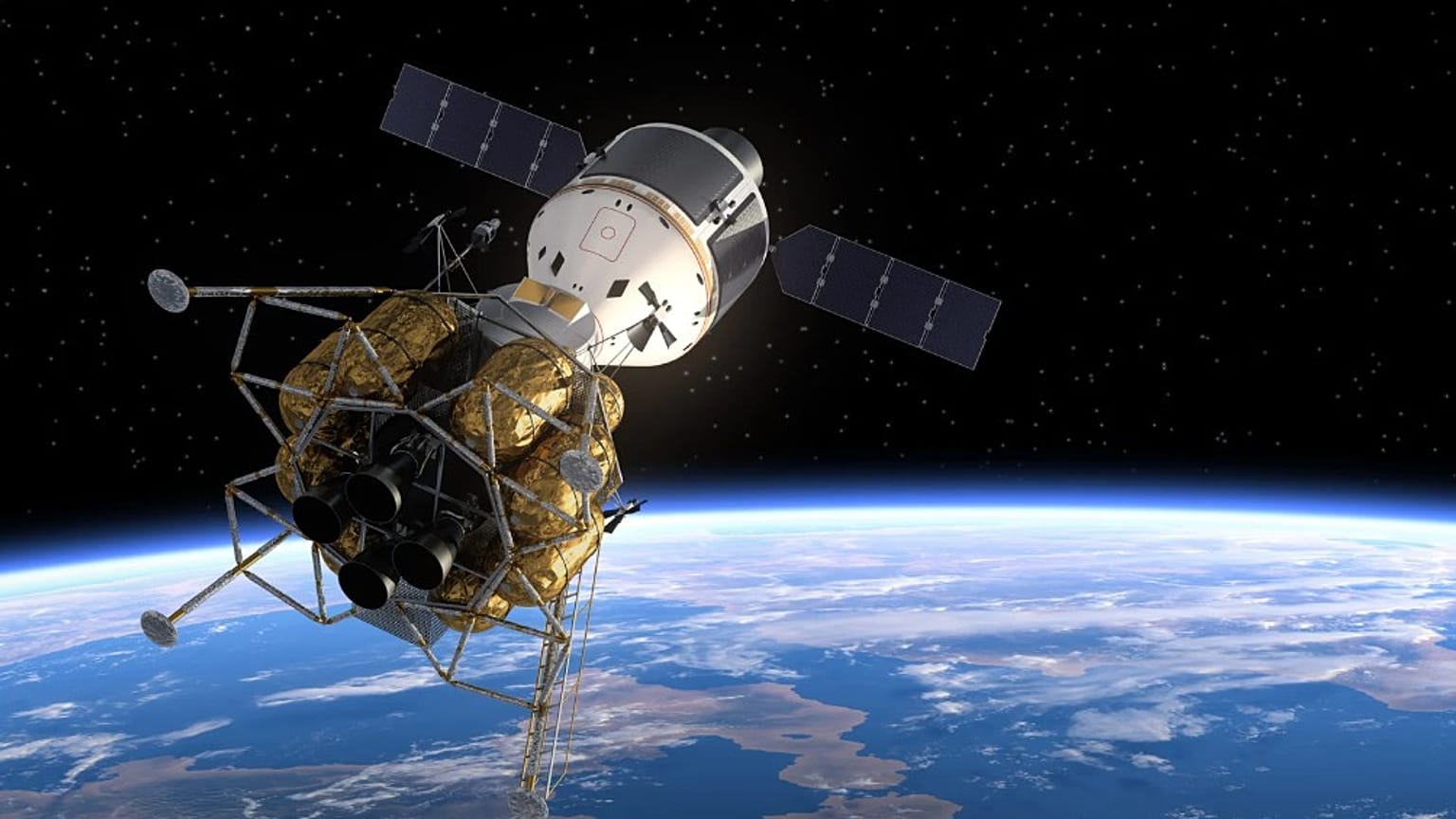Germany and France recently launched new space strategies. What do other countries have in place?
Across Europe, space agencies are expanding their strategies to blend science with security.
 ADVERTISEMENT
ADVERTISEMENT
 ADVERTISEMENT
ADVERTISEMENT
Countries such as Germany, France, Italy, and the United Kingdom are investing in space satellites, defence, and launch capabilities to protect assets, boost competitiveness, and respond to emerging threats in orbit.
The emphasis on defence comes amid GPS jamming threats, new kinetic missiles, and dependence on foreign launch systems threaten to limit Europe’s space access. What are different European countries prioritising in space?
Germany
Germany unveiled its first national strategy for the future of space, with a focus on security.
The new plan, unveiled in November, covers spaceflight projects, the expansion of satellite networks and international collaborations so the country can become “more capable of action” in space, a government statement reads.
“Space systems have become an integral part of our lives … their failure or disruption would have serious consequences for our security and everyday lives,” defence minister Boris Pistorius said in a statement.
It also earmarks €35 billion in new investments for the space sector “in the coming years,” to defend Germans from incidents such as GPS signal disruptions by Russia in the Baltic Sea region.
France
President Emmanuel Macron announced in November that France’s new space strategy will marry scientific research and security.
The French plan has five main goals: maintaining competitive access to space, building a space economy, retaining a space military architecture, investing in research, and fostering international cooperation.
Among the goals listed in the plan is to modernise the space centre in French Guiana, where the Ariane 6 launcher will eventually pilot commercial flights.
The plan includes an additional €4.2 billion investment into space defence,bringing the total investment to over €10 billion by 2030.
Macron said that the plan matches competition in space, which is building in space, such as energy arms and lasers.
One of the weapons that France could invest in is patrol-seeking satellites called Orbit Guard and Toutatis that will be able to protect the country’s assets in orbit.
The plan will also strengthen military capabilities in intelligence, early warning systems and communications.
France will contribute more research in Earth sciences to help climate resilience efforts.
The recent plan builds on France’s Military Programming Act, which promised to build systems that could detect suspicious or aggressive acts in space.
The country has also launched Space Pact, a group to facilitate conversations between the military and space industry players.
Italy
In October, Italy’s budget earmarked €109 million for the launch of a space defence plan.
While it is currently being developed, the government said it will be a “multi-domain” plan that will help Italy respond to possible threats that could occur in the next two decades.
The plan will eventually identify “short-term capabilities [and] fill operational gaps,” in its defence.
The government allocated an additional €131 million for space surveillance or “space object monitoring,” to protect national space assets, keep an eye on space debris and maintain a “safe access” to space.
The budget also allocated €186 million for a Sicral 3 satellite, a high-frequency satellite that will improve secure communications between the Italian government and the military. The system was first developed in 2001 by Telespazio and Thales Alenia Space.
Thales received a €100 million contract from the Italian Space Agency to build a network of satellite factories across Italy that should be fully operational by 2026, according to local reporting.
Italy is also investing in a constellation of Earth observation satellites that will monitor environmental changes and support critical services in the country. The first launch for the future Iride constellation happened in January 2025.
The country is working with Germany and France on the development of several European launchers, including the Ariane 6 and its smaller sister, Vega-C.
United Kingdom
The UK Space Agency’s plan, released in September, will use space to strengthen the country’s economy, increase security and continue to unlock “global discoveries that inspire millions”.
The country will invest in small-launch capabilities such as launch vehicles, eco-friendly spaceports and developing niches in satellite communications.
There is also a push from the UK to build the right capacities to repair, upgrade or assemble satellites while in orbit.
The UK’s Space Agency says it will achieve its plans by building inclusive workplaces that attract and keep talent, making more investments in science and innovation fields and through international partnerships.
Sweden
The Nordic country launched its first defence and security space strategy in 2024.
The strategy is based on four pillars: autonomy in space, developing a “robust portfolio” of space assets to support national defence, collective security and developing the relevant knowledge for defence projects.
To do this, the strategy said the state will expand collaboration between government agencies, private companies in the space sector, and potentially adapt space legislation.
The government has also allocated SEK 1 billion (€914 million) to the Swedish Armed Forces for reconnaissance and surveillance.
The defence policy says that Sweden’s location near the North Pole makes it an ideal place to operate, monitor and launch polar satellites in particular.
Sweden’s strategy said it is building launch capabilities for the Esrange spaceport, a launch site in the north. Firefly Aerospace will launch satellites from the station next year, according to the Swedish Space Corporation.
The Netherlands
Space is one of the key areas identified by the Netherlands in its Dutch Defence Strategyfor the end of the decade.
It sets out a series of space goals for the next four years. By 2027, the military will have a network of satellites that will provide it with reliable information.
By 2030, the Dutch want to use advanced artificial intelligence (AI) algorithms to track objects in space, record Earth observations and coordinate satellite communication.
At the same time, the military is aiming to access a European early warning system to help with air and missile defence.
Defence policy in space dates back to 2022 in the Netherlands with the Defence Space Agenda.
The country said it would build up six capacities: space situational awareness (SSA), reconnaissance, satellite communications, positioning/navigation/timing, shared early warning, and monitoring space weather.

















